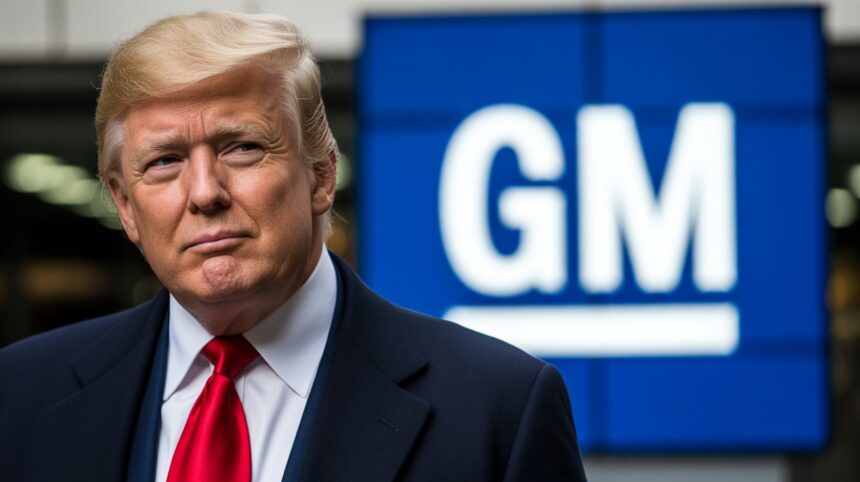Trump’s September 30 EV-Tax-Credit Sunset: What’s Changing and Why
Sweeping budget legislation signed by President Donald Trump eliminates the $7,500 federal credit for new battery-electric vehicles and a $4,000 incentive for used ones effective September 30 2025. Senate Republicans fast-tracked the provision in late June as part of the “One Big Beautiful Bill,” arguing that taxpayers should not subsidize “luxury tech toys,” while Democrats warned the move could derail clean-energy goals. Automakers from Tesla to Rivian have plastered “Last-Chance” banners across homepages, but no brand has leaned into the urgency harder—or more successfully—than General Motors.
GM’s Q2 2025 Report Card: Revenue Up, Tariffs Sting
On July 22, GM reported $47.1 billion in revenue for Q2, beating Wall Street yet revealing a 35% profit drop as Trump’s 25% auto-parts tariffs carved a $1.1 billion hole in earnings. CEO Mary Barra framed the hit as “the cost of staying the course” toward an all-electric future, reiterating 2025 EBIT guidance even as tariff impacts may grow to $5 billion for the year.
Breaking Down the 111% Year-on-Year EV Growth
Despite the macro headwinds, GM sold 46,280 EVs in Q2 2025—up 111% from a year earlier. Chevy alone posted a 146% spike, vaulting past Ford to become the No. 2 EV brand in the United States. Cadillac claimed the luxury EV crown with its Lyriq, Vistiq, and Escalade IQ lineup, while GMC’s Sierra EV nudged Hummer EV volumes higher.
Consumer FOMO: Buying Before the Incentive Clock Runs Out
Dealer surveys show showroom traffic up 18% since June, driven largely by buyers who “refuse to leave $7,500 on the table,” as one California sales manager told Reuters. Market analysts at Barclays predict a “sharp pull-forward” in Q3 followed by a potential 27% post-deadline drop in nationwide EV registrations.
Competitive Arena: GM vs. Tesla, Ford, and the Rest
Tesla still leads in absolute volume, but its California sales have fallen for seven consecutive quarters, even as GM ramps Midwest production capacity. Ford, Stellantis, and Hyundai are matching GM’s rebates yet lack equivalent model depth in the $30K–$45K sweet spot where tax credits matter most.
Model Spotlight: Equinox EV, Blazer EV, Silverado EV
- Equinox EV — Starting under $35,000, the compact crossover now ranks third in U.S. EV sales year-to-date.
- Blazer EV — GM’s midsize entry uses the same Ultium platform but adds performance trims to lure sporty-SUV buyers.
- Silverado EV — Though still launch-constrained, fleet pre-orders are robust, hinting at a profitable 2026 ramp-up.
Battery & Supply-Chain Strategy: Ultium + LFP
GM’s joint-venture Ultium Cells plant in Tennessee will begin producing low-cost lithium-iron-phosphate (LFP) packs in Q4, trimming material costs by up to 30%. The company also allocated $4 billion to retool Kansas facilities for next-gen affordable EVs, as per Electrek.
The Tariff Squeeze and GM’s $1.1 Billion Counterpunch
The automaker plans to blunt about 30% of tariff costs through sourcing shifts, price discipline, and an internal hunt for “every non-value-add dollar,” according to CFO Paul Jacobson. Analysts remain skeptical that cost cuts alone can offset both tariffs and credit loss, yet GM insists its margin roadmap assumes zero federal subsidies post-2025.
Dealer-Level Incentives and Financing Plays
Beyond the headline sticker rebates, GM Financial introduced 1.9% APR financing for 48-month EV loans and sub-$300 leases on the Equinox EV—programs timed to expire with the tax credit. Early data show lease mix rising to 38%, a handy hedge if residual values wobble once incentives disappear.
Life After the Credit: Demand Elasticity and Pricing Scenarios
If the credit ends as scheduled, average EV transaction prices could rise roughly 13% overnight, according to Cox Automotive modeling. GM executives hint at additional factory incentives or software-based revenue streams (Super Cruise subscriptions, battery-preconditioning packages) to preserve volume without gutting profitability.
Policy Watch: The “One Big Beautiful Bill” and Senate Push
While the House’s version keeps credits alive through 2025, Senate leadership vows to stick with the harder September deadline. A reconciliation skirmish could emerge in August, but few lobbyists expect a reprieve large enough to alter Q3 sales strategy. GM’s public-affairs team, meanwhile, is “laser-focused on charging infrastructure,” hoping Congress salvages at least that funding even if vehicle credits vanish.
Environmental & Social Impact of the EV Rush
Pull-forward demand means tens of thousands of EVs will hit roads three to six months sooner than previously projected. Energy-grid planners welcome the accelerated adoption curve, yet worry peak-demand spikes could stress local distribution networks if home-charger installations outpace upgrades.
Investor Angle: Stock Swings, Analyst Memos, and Guidance
GM shares whipsawed 8% on earnings day but regained ground after analysts at Benchmark and Citi reiterated Buy ratings, highlighting early-stage EV scale and low single-digit P/E ratios. Still, Morgan Stanley’s Adam Jonas cautions that “EBIT breakeven per unit” remains an unmet milestone for Detroit EV builders.
Roadblocks Ahead: Infrastructure, Affordability, Perception
Range anxiety, charging deserts in rural America, and stubborn purchase-price gaps vs. ICE vehicles all challenge GM’s long game. The company’s answer involves partnerships with Pilot/Flying J for coast-to-coast fast-charging corridors and lobbying for states to harmonize permitting rules.
FAQs — Six Quick Answers Drivers Are Googling Right Now
- Will GM honor signed purchase agreements if the tax credit disappears before delivery?
Yes. Under current IRS guidance, buyers who take delivery after Sept. 30 can still claim the credit if the binding contract was executed before the cutoff. (Check Form 8936 instructions.) - How many GM models still qualify for the full $7,500 credit today?
As of July 2025, the Equinox EV, Blazer EV, Silverado EV, Cadillac Lyriq, and Sierra EV remain eligible under domestic-assembly and battery-content rules. - Could the deadline shift again?
Unlikely. Both chambers must agree on a revised budget before recess; legislative calendars are tight. - What happens to used EV credits?
The $4,000 credit for pre-owned EVs also ends Sept. 30, shrinking the pool of budget-friendly second-hand electrics. - Will GM cut EV prices if demand drops?
Management says targeted incentives will replace blanket price cuts, protecting margins while keeping payment options competitive. - Does the tariff hit apply to batteries too?
Yes—cells imported from South Korea and “non-favored nations” incur the full 25% levy, which GM is offsetting by localizing LFP production.
Why GM’s EV Momentum Could Outlast Policy Shifts
General Motors is sprinting toward a once-in-a-generation policy cliff. A 111% sales jump proves that monetary carrots still move the market, but Barra’s broader bet rests on scale, cost innovation, and brand portfolio depth to carry momentum once the carrots vanish. If dealers keep showrooms humming through September and battery costs keep falling, the loss of the credit may sting less than skeptics expect—cementing GM’s claim to be “from Earth,” while Tesla remains “from Mars.” Only time—and perhaps the next election—will decide whether that earthbound strategy can stay profitable in a post-credit world.









